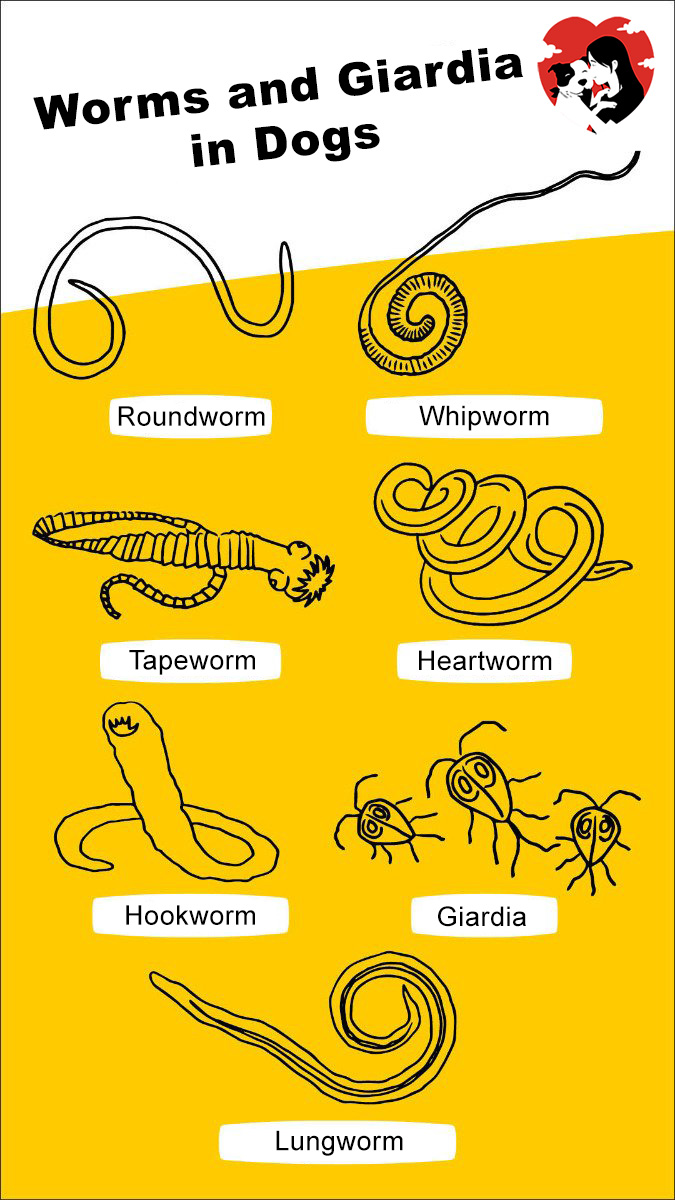Deworming a dog is one of the most common services provided in veterinary practices. Most dog owners have internalized this practice and regularly obtain a deworming treatment for their four-legged friends – either from a veterinarian or an online pharmacy. However, how often should you deworm your dog, and what alternatives are there to chemical pills? Our guide critically examines the topic of deworming in dogs, shedding light on the pros and cons of worm tablets.
Why Deworm Your Dog?
Unlike humans, who are relatively rarely affected by worms, our dogs – and cats – often suffer from worm infestations. This is because their noses are constantly close to the ground, exposing them to direct contact with contaminated surfaces as well as infected fellow animals or prey. Parasites primarily infest the digestive system of quadrupeds, but the infection can also affect other organs: the liver, lungs, heart, or skin.
In the United States, whipworms, roundworms, and tapeworms are especially prevalent. However, infections with non-indigenous heartworms, hookworms, lungworms, and skinworms introduced through travel are becoming more common. Giardia, although not classified as worms but as single-celled protozoa, are also frequent guests in a dog’s intestines. Since some parasites can be easily transmitted to humans and can also be dangerous for the animals themselves, most conventionally practicing veterinarians unanimously recommend regular deworming. How sensible is it?
Myths Surrounding Deworming
Despite the widespread popularity of worming tablets among dog owners, many misconceptions about their effectiveness persist. We debunk the most common myths.
- Myth #1: The deworming pill works for three months – The majority of veterinarians prescribe a three-month interval for worm tablets, leading many pet owners to believe that deworming medication lasts for twelve weeks in dogs. This is a misconception. The administered pill works – at best – for only 24 hours, during which the worms and their developmental stages are killed.
- Myth #2: Deworming works preventively – This is not true. The term “worm prophylaxis” is entirely inappropriate because a dog can become infected with new worms or their eggs as soon as one day after taking the pill. The deworming treatment does not prevent a new infestation.
- Myth #3: Dogs are completely worm-free after treatment – This is also incorrect. Dogs – as well as humans, horses, or cats – usually harbor a certain number of parasites in their intestines. If the immune system is intact, the worm population is generally kept low naturally. With the deworming tablet administered every three months, one is playing it safe, halting potential worm growth before it becomes too strong and could harm the animal and the environment.

Why Deworm Every Three Months?
If the deworming pill only works for 24 hours, why is deworming recommended every three months? The frequency of deworming is related to the duration it takes for new worms to develop from the eggs ingested in the dog’s intestine. Roundworms take about four weeks for this process, tapeworms a bit longer, while hookworms take considerably less time. It takes an average of four to six weeks for adult worms and their infectious eggs to be present again in the dog’s intestines and subsequently in its feces.
To ensure that the dog does not excrete any worm eggs at all, one would have to resort to the worming pill every four weeks. This is recommended for dogs that hunt mice and eat feces. With the three-month interval, the aim is to protect the animal – assuming worms are present at all – from a massive worm infestation. The worm “treatment” eliminates the parasites, whether they populate the intestines in large or small quantities.
Deworming Pill – Curse or Blessing?
Even if today’s preparations are not as burdensome for the dog’s organism as they were in the past, worm tablets consist of purely chemical substances that paralyze and kill the unwanted tenants. Worming agents mainly stay in the intestines and hardly enter the bloodstream. This enhances their effectiveness at the site of infection and causes only minor side effects in other parts of the body.
Side effects from deworming are very rare in dogs: only dogs sensitive to avermectins and milbemycins may experience side effects with a 10-fold overdose.
Increasing Resistance:
Similar to antibiotics, resistance to worming agents has been known for a long time. The area most affected is that of horses and ruminants – scientists have been warning for years about increasingly occurring resistances to various anthelmintics. After all, worms also want to survive and develop protective mechanisms that allow them to withstand chemical treatments, continue to reproduce, and pass on a higher chance of survival to their descendants.
It can happen that in a dog truly affected by the life-threatening heartworm, the administered tablets no longer work because the parasites have come into contact with the drugs so often that they can now resist them. Therefore, the American Kennel Club also advises a contemporary deworming strategy with “More prevention, more examination, less deworming.”
| Advantages of a Deworming Pill | Disadvantages of a Deworming Pill |
| Easy to administer – available as chewable tablets, spot-on, or paste | Administered even without evidence of worm infestation |
| Convenient handling, no additional actions required | Very Rarely: can cause serious side effects |
| Relatively affordable |
Deworming Your Dog: Costs of Worming Treatments
The prices for a deworming treatment for dogs are reasonable, ranging between three euros and $15 per tablet. The cost depends on the chosen preparation and the veterinarian fees. The number of pills needed for the dog is based on its body weight. The administration is uncomplicated as various deworming medications have been optimized to be palatable to dogs and accepted without resistance.
Alternative: Fecal Analysis
If common sense prevails, you should only deworm your dog when there is indeed evidence of a worm infestation, right? However, in practice, this is challenging, as laboratories do not certify “worm-free” even with a negative worm infestation result. Regular fecal examinations also do not provide certainty about possible parasite colonization in dogs, as false-negative results are not uncommon. Additionally, a fecal analysis can cost between $15 and $60, sometimes significantly more expensive than a deworming tablet. In case of uncertainties, discuss deworming and the possibility of a fecal analysis with your veterinarian!

Are Fecal Tests Reliable?
Critics point out that fecal examinations do not guarantee absolute certainty: the detection of a worm infestation in feces is only possible when the dog excretes worm eggs – and this does not happen every day. For this reason, the stool sample is collected on three consecutive days. Also, critics argue that a mild worm colonization can go unnoticed. The key to fecal examinations is their regularity: sending or having a stool sample examined by a veterinarian every four weeks is advisable.
Natural Deworming for Dogs
Looking at the naturopathic sector of the dog industry, numerous natural-based worm treatments can be found. In addition to the “soft” classics like pumpkin seeds, carrots, or coconut shavings, various mixed preparations include ingredients such as rosehip, ash bark, coriander, rue, dandelion, lemon balm, cinnamon, cat’s claw, evening primrose oil, or wormwood.
Conclusion
Parasites can cause serious illnesses in dogs and should not be taken lightly. Deworming prevents worms from spreading in the dog’s body. A fecal sample can help determine if the dog is suffering from a worm infestation. Due to frequent false-negative results in fecal examinations, laboratories do not certify “worm-free.” Only regular fecal examinations (every 4 weeks) can provide information on whether the dog has a worm infestation. If you want to be on the safe side, regular deworming of your four-legged friend is recommended. If you are still unsure whether deworming is right for your pet, contact your veterinarian for advice.


